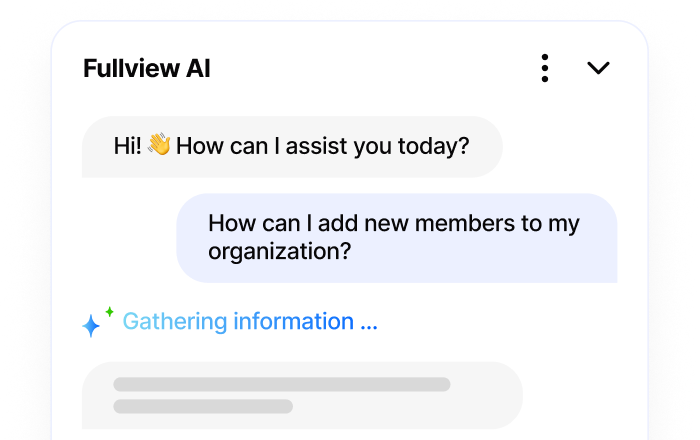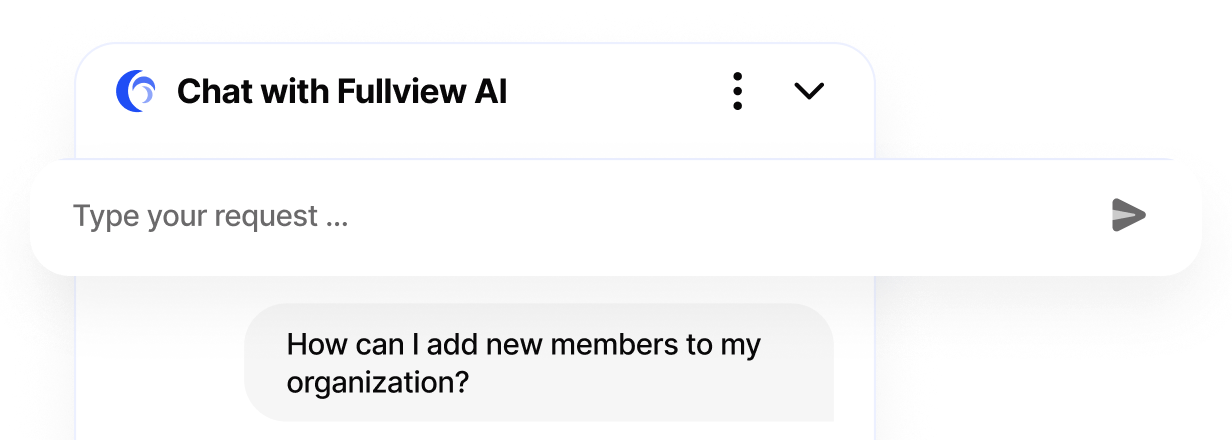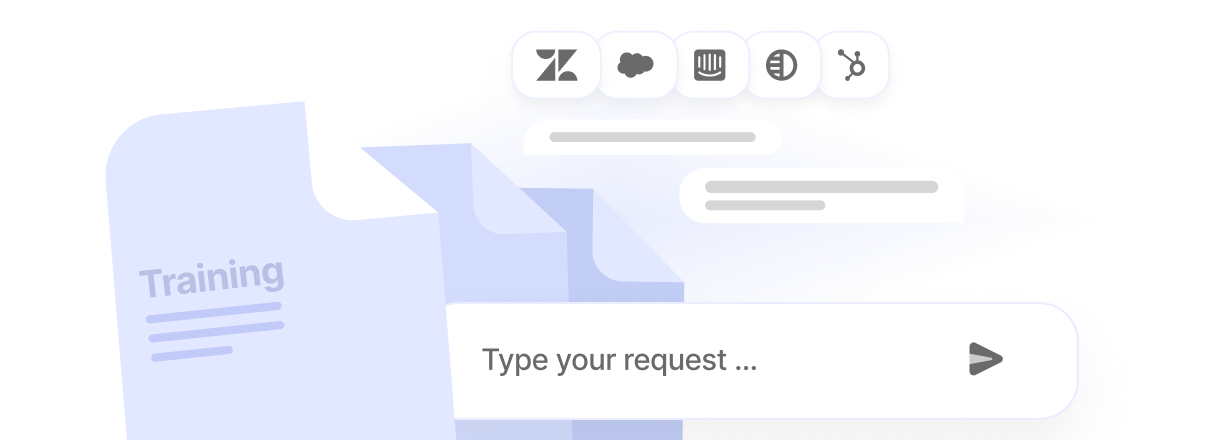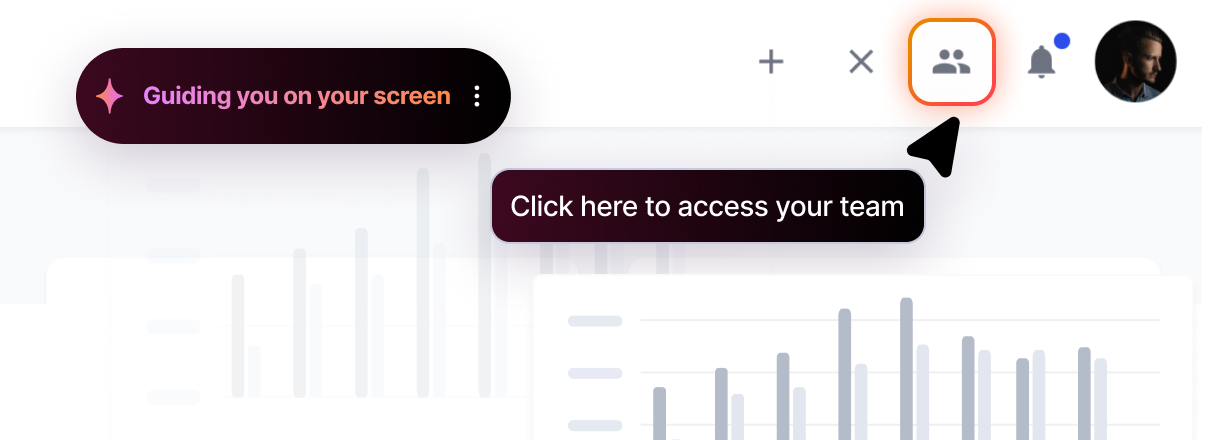Building a dedicated team of customer support agents is not easy — especially if you are a SaaS startup or scaleup that’s doing it for the very first time.
We’ve already gone into some detail about how a startup should structure its customer support team as it scales. Today, we wanted to answer a narrower question: how many support agents do you need to hire for your company?
How many customer support agents should you hire?
In order to come to a conclusion about how many support agents your company will need to hire, you have to consider two main things:
- Your product
- Your size
Each of these two considerations can be looked at from a couple of different angles. In terms of your product, it may be necessary to consider other factors such as:
- What industry you operate in
- Whether your target market consists of professionals, semi-professionals and non-professionals
- What product category you fit into
- What your revenue model is
In terms of your size, there are also several factors that come into play when deciding how many agents to hire:
- Your current customer base numbers
- Your growth projections
- The number of customer support requests (or tickets) you receive each month
- The number of tickets each agent handles or, if you don’t yet have customer support agents, the number of tickets other members of your team handle
Each of these metrics is connected and you’ll need to make sure your calculations reflect that in order to accurately estimate how many support agents you’ll need to hire as you scale.

Your product
The volume of support tickets and the time you’ll need to solve them are related to how technical your product is, what your revenue model is and how proficient your user base is.
If you provide support for a particularly technical product, you’ll probably need more support agents than if your product was simple to use and understand.
If your target market and user base consist of professionals, your support agents will receive fewer support requests and need less time solving the ones that do come in because they’ll typically be dealing with proficient users with some understanding of the software or the broader concepts.
Your business and revenue model also come into play when deciding how many support reps to hire, though it may not always be immediately apparent why. But consider this: if you are a SaaS product with a premium tier that entitles certain users to priority support, you may need more support agents than if your product was offered in more of a ‘one size fits all’ way.
Your size
A company that’s just starting out with only a few hundred active users will need a support team that looks completely different than one at a larger, more established company with thousands of users.
Similarly, a company that’s growing exponentially will need to scale its support team a lot faster than one that’s adding more modest figures to its user base each month.
You’ll need a good handle on certain metrics before you can say for sure how many support agents you’ll need to hire for your particular use case. We’ll explain each one below.
The formula
In order to calculate how many support agents you need, you’ll need to use this formula:
The number of support agents you’ll need equals the total monthly tickets divided by the average tickets per agent per month.
In order to calculate this, you’ll need to work out some figures.
Average support tickets per month
This one’s pretty easy to figure out.
If you use ticketing software, you can just pull metrics from there to see the volume of support tickets you receive each month.
If you don’t have access to that and are still handling support in an informal way, you can estimate the number of support tickets you receive by reviewing how many users reach out to you with an issue through the channels you are active on, whether that’s social media, email or something similar.
User base projections
Adding a lot of new users every month? Then you’ll need to figure out your base number projections in order to understand how much your support load and customer support tickets are likely to increase the more users you add.
Some things to consider when making this calculation:
👉 What is the current size of your user base?
👉 On average, what is your user base growth rate every month?
👉 Are there any factors that can affect your user base growth over the next few months? New marketing campaigns, sales targets, or the like?
All of these factors will have some effect on the number of support agents you’ll need to hire.
Average number of support tickets per user per month
Once you’ve figured out your current user base, you can divide that by the total number of support tickets to arrive at the average number of support tickets per user per month.
And once you have that figure, you can combine it with your user base growth projections to extrapolate how many support tickets you’ll have at what you are projecting your user base will grow to.
Average number of support tickets per agent per month
The next figure to calculate is the average number of support tickets per agent per month.
As with the average number of tickets per month, this figure will be easy to dig up if you already have ticketing software. If you don’t, you’ll have to estimate it to the best of your ability.
One thing to note is that, while it may be tempting to up this number because it means you’ll need to hire less support staff and will therefore save costs that way, this is a terrible way for any company to be thinking about customer support!
Keeping your customers happy should be your number one priority — especially in SaaS where a churn rate can make or break you. The more tickets you make your agents responsible for each month, the higher the chances are for subpar support interactions, more burnout on the part of your agents and more churn on the part of your customers. So make sure you are conservative when making this estimate.
Calculate how many customer service agents you need
Now that you’ve calculated all those metrics, you can plug them into the formula we gave you at the very beginning of this post:
Number of support agents = average number of support tickets per month / average number of support tickets per agent per month
And that will give you a good ballpark figure to aim for when you start building or restructuring your support team.
Some things to keep in mind: the context around these numbers matters. As we’ve already explained, having a really quick time to resolution and a high average of support tickets per agent per month is great on paper, but not if it’s negatively influencing customer satisfaction (CSAT) scores.
Similarly, your user base projection numbers are also crucial to consider, even though the numbers themselves aren’t plugged into the formula above. You need to build a support team for the growth you’re expecting to see, rather than the situation you find yourself in today.
Support is hard to fix once it’s broken, so it’s crucial for companies — both new and established ones — to take it seriously and see it as more than just a cost center. When used correctly, good customer support can help you keep your existing customers loyal and bring in new users through referral traffic.
When it comes to customer support teams, it’s important to shore up all your defences, hire enough qualified people, and invest in them from the get-go.
It’s one of the only surefire ways to go about building a profitable, sustainable business.
Other ways to determine how many customer support reps to hire
Apart from the formula we've just explained, there are a few other methods you can use to determine how many customer support agents you'll need to hire.
For example, you can look at general benchmarks for what the ratio of your customer support agents should be against parameters like company size, revenue and what industry you're in.
Here are a few you can also take a look at when you're ramping up your customer support team:
- Customer support agents per customer
- The ratio of customer support spend to ARR
-
How many customer service agents per customer?
You can use this as a bit of a shortcut to figure out for how many customer support reps you need to hire, because there are some general guidelines you can follow, but it's hard to use it to figure out an exact number.
According to Harvard Business Review, you should consider hiring your first full-time support agent when you have anywhere from 5 to 20 customers.
Of course, that depends on the volume of support tickets you typically receive and whether their complexity merits a dedicated support agent.
After that first customer support agent has been hired, it's a little hard to narrow down further because there are so many factors to consider, so the first method we laid out is probably your best bet. However, If you want an incredibly general ballpark figure, hire an additional rep for anywhere from a few hundred to a few thousand new users.
Ratio of customer support spend to ARR (annual recurring revenue)
.png)
According to SaaS Capital, a typical SaaS company making anywhere from $1M to over $20M in ARR spends about 10% of that amount on customer success/support.
So, assuming your SaaS company is aiming to hit those benchmarks and your ARR is $5M, then you're going to be spending about $500,000 a year on customer support costs. If you disregard other costs associated with customer success/support and focus only on the average salaries, and you build your team to look something like this:
- 2 customer success manager: Avg. salary is about $80,000 per manager
- 1 customer support manager: Avg. salary is about $80,000 per manager
- 5 customer support representatives: Avg. salary is about $44,000 per representative.
Then you should aim to hire 5 customer support representatives.
A big caveat: this setup is not going to work for every company and is just to illustrate how you might go about using these benchmarks and your ARR to determine how many agents it makes sense for you to spend money on.
Number of support agents depending on your geography
This dovetails nicely with the point above, but the average salaries listed were all typical of the US. If your customer support team is primarily US-based, you're probably paying a whole lot more than if it is outsourced to a place like India, for example, where customer support salaries are much lower — as low as $3000/yr according to some estimates. So if you choose to outsource your customer support, you can, of course, afford to hire more agents.
Number of technical support agents vs number of general support agents
Another consideration to keep in mind when trying to figure out how many agents to hire is whether you're hiring for technical support or regular support.
When it comes to technical customer support, you're going to be receiving less inquiries than for level 1 support requests. Given that this is almost always the case, you can afford to hire less customer support agents for technical customer support.
However, you should note that time-to-resolution for technical support tickets is significantly higher than level 1 support inquires, so that's something you'll need to take into account.
Wrapping things up
Building a customer support team for SaaS startups or scaleups can be challenging, particularly for those doing it for the first time. To determine the number of support agents your company needs, you need to consider various factors related to your product. These include the industry you operate in, your target market, the product category you belong to, and your revenue model. Additionally, consider your company's size, taking into account your current customer base, growth projections, the number of customer support requests, and the average number of tickets each agent handles.
With this information, you can calculate the required number of support agents using the formula: Number of support agents = total monthly tickets / average tickets per agent per month.


.webp)
.png)





.webp)
